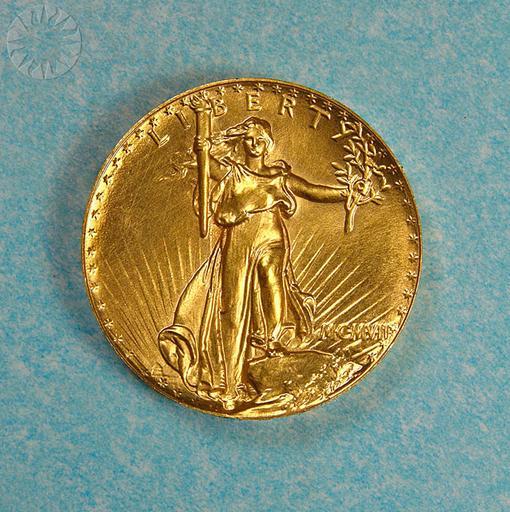MAKE A MEME
View Large Image

| View Original: | United_States,_20_Dollars,_1907_(experimental).jpg (638x640) | |||
| Download: | Original | Medium | Small | Thumb |
| Courtesy of: | www.flickr.com | More Like This | ||
| Keywords: legendary coins legendarycoins numismatics money smithsonian probably public domain probablypublicdomain round circle SI Neg. 2005-27352. Date: 9/1/2005...Someone once observed that a giraffe was a horse designed by a committee. The same might be said of this coin: what had seemed a good idea around a table in the boardroom proved to be an interesting but spectacular flop as it neared production. .The coin resulted from a project that President Theodore Roosevelt began in 1905 to redesign American coinage. He commissioned sculptor August Saint-Gaudens to create the new designs, and Saint-Gaudens developed a plan for an ultra-high relief $20 coin. The coin here, which appears to have been struck early in 1907, followed Saint-Gaudens' basic designs, but there the similarities ended. .This experimental coin contained twenty dollars' worth of gold, but it was squeezed into a coin the width of a ten-dollar piece. The discrepancy was handled by making the patterns much thicker than ordinary coins. Staff at the Mint wondered whether it was possible to decrease the diameter to have the best of both worlds: a coin in glorious high relief that didn't take quite as many blows of the press to create. The experiment failed. Although the patterns were unacceptable for commerce, word of their existence leaked out to the collecting community. An exasperated Mint Director wanted them called in and melted down. Somehow two escaped. Both are in the Smithsonian Collection..Click here to view the obverse...Credit: Tom Mulvaney (Smithsonian Institution) SI Neg. 2005-27352. Date: 9/1/2005...Someone once observed that a giraffe was a horse designed by a committee. The same might be said of this coin: what had seemed a good idea around a table in the boardroom proved to be an interesting but spectacular flop as it neared production. .The coin resulted from a project that President Theodore Roosevelt began in 1905 to redesign American coinage. He commissioned sculptor August Saint-Gaudens to create the new designs, and Saint-Gaudens developed a plan for an ultra-high relief $20 coin. The coin here, which appears to have been struck early in 1907, followed Saint-Gaudens' basic designs, but there the similarities ended. .This experimental coin contained twenty dollars' worth of gold, but it was squeezed into a coin the width of a ten-dollar piece. The discrepancy was handled by making the patterns much thicker than ordinary coins. Staff at the Mint wondered whether it was possible to decrease the diameter to have the best of both worlds: a coin in glorious high relief that didn't take quite as many blows of the press to create. The experiment failed. Although the patterns were unacceptable for commerce, word of their existence leaked out to the collecting community. An exasperated Mint Director wanted them called in and melted down. Somehow two escaped. Both are in the Smithsonian Collection..Click here to view the obverse...Credit: Tom Mulvaney (Smithsonian Institution) | ||||